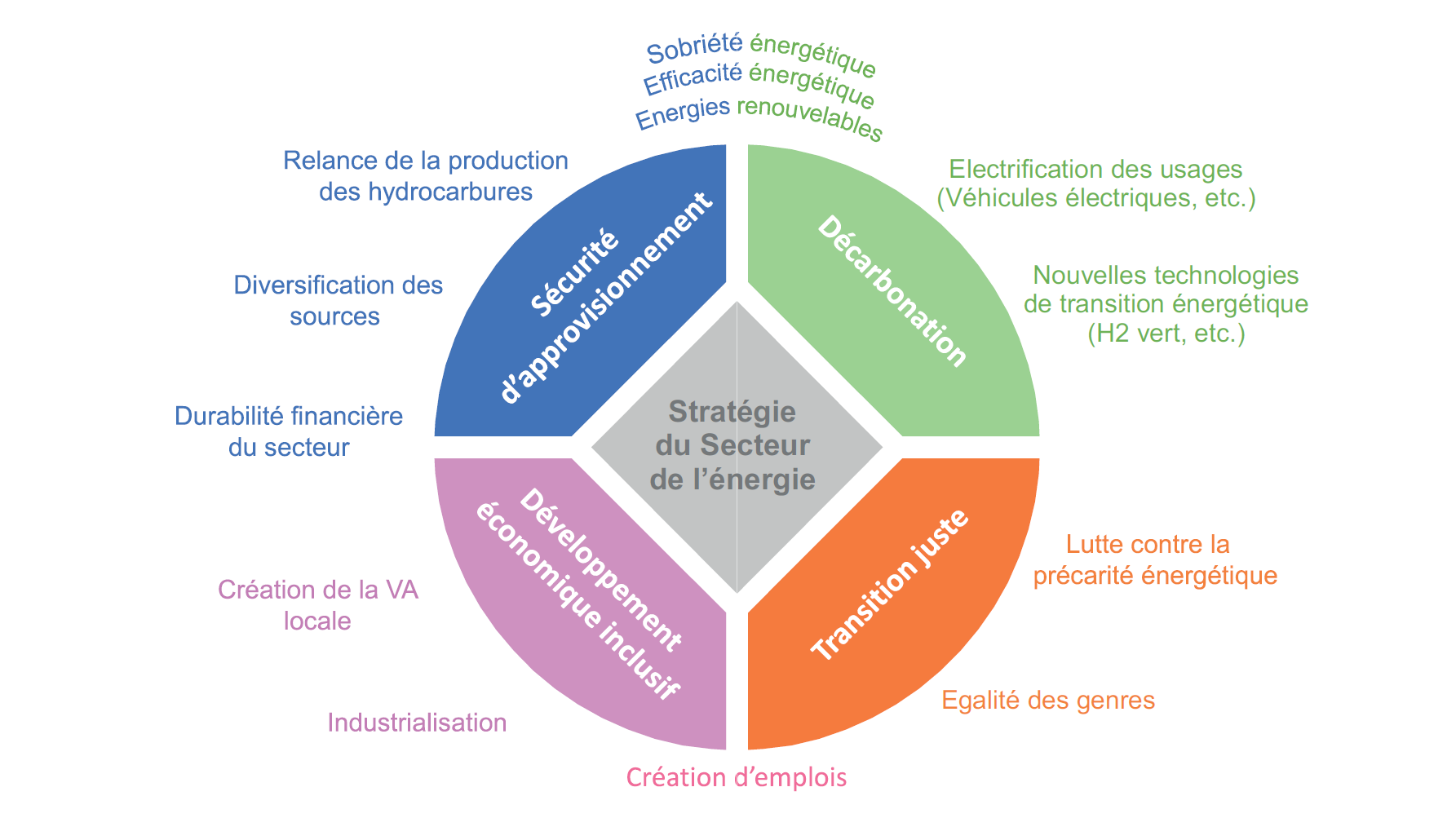
Central project evaluation of the project “Promotion of an accelerated Tunisian energy transition TETA”
Location
Tunisia
project period
08/2025 to 03/2026
client
Deutsche Gesellschaft für Internationale Zusammenarbeit (GIZ)
Services provided
Consultancy
Partner organisation
Subject to this evaluation is the “Promotion of an accelerated Tunisian energy transition TETA” (12 million Euro, Feb 2022 – Jan 2026). In Tunisia, electricity is generated almost exclusively by burning natural gas, more than half of which is imported. This dependence poses a threat to energy security and is a drain on the national budget. At the same time, energy efficiency (EE) and renewable energy (RE) have enormous potential in Tunisia. The country’s energy transition strategy will reduce primary energy demand to decrease by around 30 % and to generate 35 % of its electricity from RE by 2030. In addition, greenhouse gas emissions are to be reduced by 45 % compared to 2010, with the target of climate neutrality by 2050. This will protect Tunisia from rising energy prices, reduce the burden on the national budget and promote value creation and employment. However, the implementation of the energy transition strategy is being delayed by slow and complex procedures. The project aims to 1) strengthen strategic and reglementary capacities at the Ministry, 2) strengthen capacities at the National Energy Agency, 3) improve access of private sector actors to information and trainings to improve competences for planning, installation and maintenance of EE and RE systems, 4) enhance capacities of public institutions in the energy sector to handle innovative approaches for a more flexible power system ensuring stable grid operation with increasing shares of RE.
Objective: Central evaluations of projects commissioned by the German Federal Ministry for Economic Cooperation & Development serve a) to support evidence-based decisions, b) to promote transparency and accountability, and c) to foster organizational learning to contribute to effective knowledge management.
Services provided by Skat: workshops, interviews, verification of hypotheses from results matrix (Theory of Change), SMART analysis of indicators, application of efficiency tool based on cost data, interviews with numerous stakeholders and final beneficiaries (including Ministry of Energy, the National Energy Agency and the Tunisian Company of Electricity and Gas (STEG), etc.) debriefing workshop, reporting.
Activities: inception report (methodological approach); evaluation based on information from project and other documents, site visits and interviews with involved partners and beneficiaries, comprehensive evaluation report (in French) based on a detailed analysis of interview results, triangulation, validation of findings and final conclusions and recommendations, elaboration of a 1-pager and a 7-pager summary.

